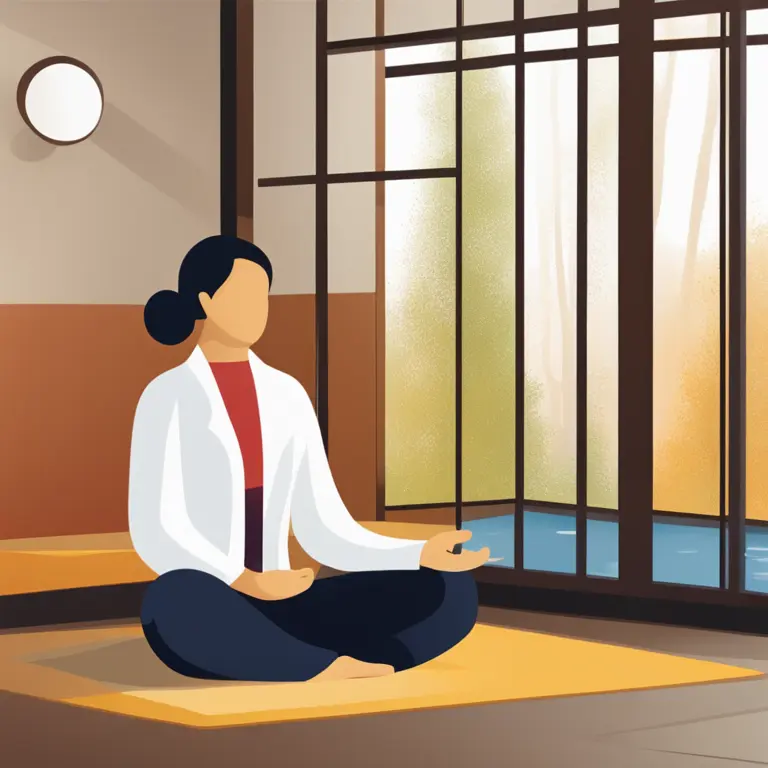
Mindful Resilience for Nurses
Nourish your nursing practice with the peace and presence of mindfulness meditation. Find out how this tool can enhance focus, reduce stress, and improve care.
article by Hina Kurosawa
Mindful Beginnings in Nursing
Meditation has long been praised for its ability to foster mindfulness—a state of active, open attention to the present moment. In the high-pressure environment of healthcare, nurses face unique challenges that can lead to stress and burnout. Mindfulness meditation offers a refuge—a way to center oneself amid the chaos. It encourages practitioners to experience and acknowledge their thoughts and feelings without judgment. This simple shift in awareness can transform the way nurses interact with their work, uplift their well-being, and consequently improve patient care.

The Science of Mindfulness
Recent studies underscore the benefits of mindfulness, particularly in healthcare settings. By integrating mindfulness meditation into their routine, nurses can reduce symptoms of anxiety, depression, and job-related stress. The practice has been associated with enhanced cognitive functions like attention, concentration, and memory—essential skills for navigating the complexities of medical care. In an era where the healthcare industry is increasingly acknowledging the importance of mental well-being, the incorporation of mindfulness techniques is seen not just as a trend, but as an evolving standard for nursing education and practice.

Adopting the Mindful Practice
Starting a mindfulness meditation practice may seem daunting at first, but it can be gracefully woven into the daily rhythm of a nurse's life. Simple exercises such as deep-breathing techniques, sensory awareness routines, or guided meditations can be employed during short breaks. Apps and digital platforms—geared towards healthcare professionals and updated for 2024 standards—offer a wealth of resources that make starting and maintaining a practice more accessible than ever. Nurses can leverage these tools to create a structured, yet flexible, meditation regimen that suits their schedules.

Impact on Patient Care
Mindfulness meditation not only benefits the nurses themselves but also resonates through their patient care. A nurse present in the moment is better equipped to listen, empathize, and engage with patients on a deeper level. This enhanced rapport can lead to more accurate assessments, improved patient outcomes, and a more compassionate healing environment. As healthcare continues to evolve, approaches that consider the emotional and psychological dimensions of patient care, including strategies like mindfulness, are increasingly valued and incorporated into quality care metrics.

Building a Supportive Community
Fostering a culture of mindfulness in the workplace can be a collective endeavor. Teams that engage in mindfulness exercises together could see improvements in communication, collaboration, and overall job satisfaction. Leadership initiatives in 2024 are more proactive in facilitating mindfulness seminars, workshops, and peer-support groups to nurture a work environment where mental resilience takes precedence. Such initiatives not only validate the individual experiences of nurses but also strengthen the backbone of the entire healthcare system.
Mindfulness as Continuing Education
With the healthcare industry's growing emphasis on holistic practices, mindfulness meditation has found its place in continuing education for nurses. Institutions are increasingly offering courses and certifications in mindfulness techniques, recognizing them as essential tools for modern healthcare professionals. As these practices are solidified in the professional development path, nurses are empowered to sustain their mental wellness and provide the highest level of care consistently.
Published: 1/18/2024
Modified: 1/18/2024
More predictions
Come back here soon to learn more about yourself and your future


Mindfulness Meditation As A Tool for Anxiety Relief
Discover how mindfulness meditation can be a powerful tool for anxiety relief, fostering a sense of peace and well-being through simple, guided practices.


Mindfulness Meditation: A Path to Lasting Happiness
Discover how mindfulness meditation can enhance your sense of wellbeing and lead you to a happier life in this insightful article.


Mindful Teaching: Meditation Practices for Educators
Discover the benefits of mindfulness meditation for educators seeking balance, enhanced concentration, and emotional wellbeing in a demanding profession.